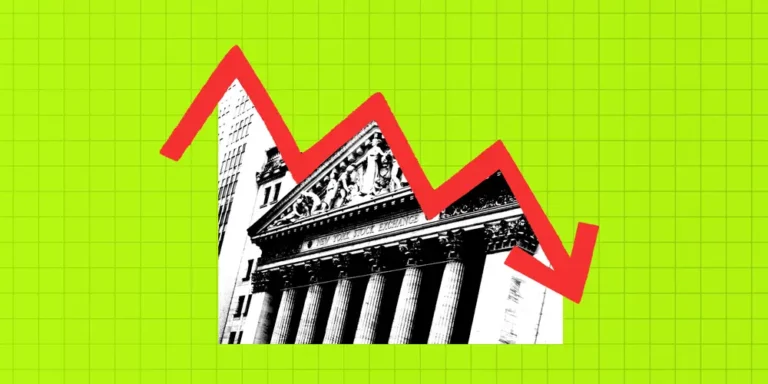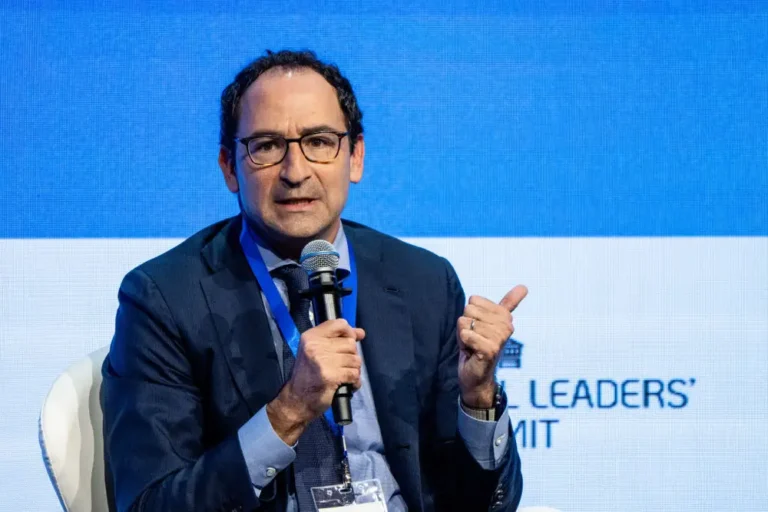The CEO who brutally fired hundreds of the people on Zoom is taking his startup public in a move that could make or break him

- Vishal Garg is taking Better, a mortgage startup, public through a long-delayed SPAC deal.
- The stock dropped more than 90% on its first day of trading, but Garg insists he has a plan.
- Read what he said about making acquisitions and the millions he’s received in company loans.
Better Home & Finance, an online mortgage lender, began trading on Thursday after a merger with blank-check company Aurora Acquisition Corp. The stock, which trades on the Nasdaq under the ticker symbol BETR, fell more than 90% at the open.
The stock fell so precipitously that trading was halted four times before 10:00 a.m.
However, CEO Vishal Garg, who is known for laying off hundreds of employees via Zoom, insists he has a plan.
He should — no pun intended. SPACs were all the rage in May 2021, the 30-year mortgage rate was just above 3%, and Better was on its way to becoming LinkedIn’s top startup for the second year in a row. SPACs have fallen out of favor in the two years since, mortgage rates have risen to their highest levels in decades, and Better’s reputation has suffered greatly, thanks in part to Garg, who claimed that some of the company’s laid-off employees deserved to be fired because they barely worked.
Instead of ringing the Nasdaq’s opening bell as a newly minted billionaire, Garg has been meeting with reporters ahead of trading in the hopes of selling them on the IPO and his vision for the company.
During Insider’s meeting with him on August 17 at Better’s World Trade Center headquarters, it became clear that this is just the latest make-or-break moment for the ambitious tech entrepreneur, whose Zoom layoffs were cited as a risk factor in an SEC filing outlining the merger plan.
Despite Better’s revenue dropping from $1.24 billion in 2021 to $383 million in 2022, Garg is pushing forward with the SPAC because he sees it as a chance to turn the company’s fortunes around when interest rates begin to fall, which some experts believe could happen as soon as next year.
Better will receive $565 million in new capital as a result of the merger, including $550 million in convertible notes from Japanese investment giant Softbank — money that the company will need to make its one-day mortgage product the industry standard and to make strategic acquisitions.
He also anticipates an increase in refinancings once the Federal Reserve begins to lower interest rates. He cited Rocket Mortgage’s stock, which has risen 48% year to date, as evidence that investors see a light at the end of the rising-rates tunnel.
According to one former employee, the move appears to be a “Hail Mary,” both for Garg personally and for the company as a whole. This person could be correct. Softbank’s loan terms give Garg only five years to demonstrate that Better should be restored to its former status as one of the world’s most valuable mortgage companies — and that he should be in charge of it.
According to Insider’s calculations, if he succeeds, he will join the ranks of Silicon Valley’s illustrious startup billionaires. If he fails, he will be personally liable for repaying the funds, and he risks being remembered as the CEO responsible for the infamous Zoom layoffs.
Here’s how Garg plans to spend the money Better receives from the IPO. Insider also questioned Garg about $41 million in Better loans, some of which may be forgiven, as well as his stake in the company.
Going public two years later
Better’s One Day Mortgage product was introduced earlier this year in order to provide customers with a mortgage commitment letter in as little as one day. Garg believes that turnaround will become the norm in the mortgage industry. He plans to heavily invest the Softbank funds in product marketing.
His timing could not have been worse. 30-year mortgage interest rates are now at 7%, the highest level since the dot-com bubble burst in 2000. As a result, mortgage origination volumes have plummeted to their lowest point since 2000, falling 70% from the first quarter of 2021. Mortgage refinancing is all but extinct.
Better’s books reflect the recession. According to SEC filings, the company lost nearly $1.2 billion from 2021 to 2022, and an additional $90 million in the first quarter of this year. This compares to a $172 million profit in 2020, during a wave of mortgage refinancing.
However, Garg sees the downturn as an opportunity to acquire beaten-down mortgage competitors.
“There are 4,000 mortgage companies that are struggling out there today,” Garg said. “Some of them will throw in the towel.”
Garg hopes to be there to pick up the pieces when they do. Better’s business has traditionally only offered mortgages online, attracting customers who are looking for a mortgage on the internet, but it now plans to acquire companies with a local presence, allowing them to sell mortgages to customers who are unlikely to find a mortgage online.
Better has a long way to go before regaining its former glory. According to the Scotsman Guide, the company was the 10th largest mortgage originator by volume in 2021, but it is now the 59th largest in the first quarter of this year.
However, Garg suggested that the company’s reduction was intentional, as a way to weather the storm and save money. In addition to reducing loan volumes to $11.4 billion last year, from $58 billion in 2021, the company has reduced its workforce by 91% to approximately 950 employees.
Garg’s stake
SoftBank has already invested $750 million in the company, in addition to a $500 million equity stake.
Outside investors, on the other hand, have been pulling their money out: only a little more than $20 million of the $282 million SPAC sponsor Aurora held from investors at the end of December 2022 remains, with the vast majority of investors opting to redeem their investments rather than receive shares of the merged company.
Garg is also betting money. He went out of his way to personally indemnify SoftBank for any losses on their most recent $550 million investment. Garg is personally liable for any SoftBank losses if Better is worth less than $6.9 billion five years after the loan was made.
According to regulatory filings, shareholders stand to lose if Garg sells his stock to meet the terms of Softbank’s loan guarantee, causing the price to fall.
But he also stands to benefit financially. Garg stands to own approximately 19.1% of Better’s Class B stock if he exercises his maximum redemptions when the deal closes, according to Insider’s calculation, through his venture capital firm 1/0 Capital, in which he owns a 95% stake, and shares he has accumulated personally. This could give him 15.5% of the company’s total shares and 18.2% of voting power, making him the largest shareholder in the new company.
Garg told Insider that he “doesn’t know” how much of his own stake is, and the company declined to comment on his behalf, saying that a filing with updated ownership figures would be released later this week.
If the company can return to its 2021 valuation of $6.9 billion (and Better’s A, B, and C shares all have the same value), he will become a paper billionaire. Garg has also received $41 million in Better loans, which the company has stated in filings could be partially forgiven, including through stock exchanges.
Garg’s personal life is at stake as well.
Following the Zoom layoffs, he took a leave of absence and began working with an executive coach to address criticisms of his leadership style that surfaced as a result of the debacle, including claims that he was overly aggressive and self-centered.
Garg’s last interview with Insider was roughly 10 months after the Zoom layoffs, and he still came across as a straight shooter, even if it occasionally resulted in him putting his foot in his mouth. During that interview, he admitted to having “blundered” the company’s downsizing, and he used the phrase “crack shack” to describe what a $400,000 home would look like in his hometown of Queens, New York.
Garg stayed true to the message this time.
It remains to be seen whether this polished and, to be honest, cookie-cutter version of Garg helps Better. When Insider asked him about a line in the company’s SEC filings that stated that some of the $41 million in personal loans he received from Better could be forgiven in exchange for stock, the only hint of the former Garg — outspoken and refreshingly honest — came through.
“The company has found a way to offset those loans, so those loans will not be forgiven,” Garg explained before requesting that the statement not be attributed to him, which Insider refused. He stated that the details of the new loan forgiveness would be made public in a filing with regulators soon.
“It’ll be filed eventually,” Garg predicted.






